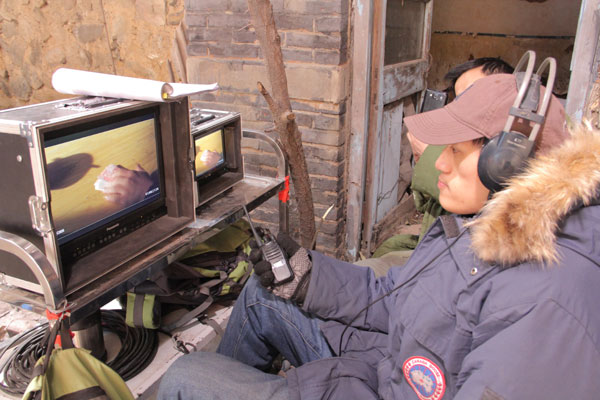New Chinese thriller breaks bad stereotype
Updated: 2014-08-09 07:27
By Liu Zhihua (China Daily)
|
||||||||
 |
|
Director Xing Bo at work. Xing is one of young directors who start with their career with horror movies. [Photo provided to China Daily] |
Poorly plotted
The reviews of Mysterious Island were unremittingly critical of its plot and shabby sets, but the film is far from the worst on offer, many of them scoring fewer than three points on Douban.
|
|
|
|
Even Xing and Zhou admit that Chinese-made horror movies lack bite because most of them try to scare the audience in unsuccessful, straightforward ways by using images of ghosts and murders, rather than clever, suspenseful plots. Audiences often mock the endings when the supernatural powers or ghosts are revealed to be imaginary or illusions dreamed up when the characters are sleeping, writing novels, drugged, or have mental health issues.
According to Fujian Heng Ye's Chen, the clumsy plots of domestic horror movies are the result of a dearth of excellent writers, a universal problem in the Chinese movie industry, although the government's ban on ghosts and superstition in plotlines can limit creativity.
Also, because some investors believe low budgets are sufficient for horror movies, few domestic productions attract more than 10 million yuan, and most only receive 3 to 6 million yuan. The lack of funding means few top-tier actors or directors work within the genre, and it's impossible for filmmakers to provide convincing visual all sound effects, Chen says.
Audience tastes have matured in the past decade, and it's becoming increasingly difficult, if not impossible, to satisfy Chinese audiences with badly produced, poorly plotted horror movies. In fact, in recent years a number of homegrown horror movies have barely recouped their costs, and some have even lost money. However, the success of The House That Never Dies is a milestone that could lead to domestic horror movies becoming exquisite, big-budget productions, Chen adds.
Cao, the Beijing resident and horror movie fan, has resolved not to see The House That Never Dies, even though his partner Lu watched it and awarded it seven out of 10: "I have no confidence in domestic horror movies, at least not at the present time."

 Star Stefanie Sun holds concert in Beijing
Star Stefanie Sun holds concert in Beijing
 Faye Wong's manager refutes star's drug rumors
Faye Wong's manager refutes star's drug rumors
 Lu Yi and daughter Bei Er pose for street snaps
Lu Yi and daughter Bei Er pose for street snaps
 Photoshoots of actress Li Xiaomeng
Photoshoots of actress Li Xiaomeng
 Council of Fashion Designers of America Awards
Council of Fashion Designers of America Awards
 Fan Bingbing, first Chinese actress in Barbie Hall of Fame
Fan Bingbing, first Chinese actress in Barbie Hall of Fame
 Awarding ceremony of 2014 hito Pop Music held in Taipei
Awarding ceremony of 2014 hito Pop Music held in Taipei
 Zhao Liying's photo shoot for Children's Day
Zhao Liying's photo shoot for Children's Day
Most Viewed
Editor's Picks

|

|

|

|

|

|
Today's Top News
Many Chinese economic fugitives still at large in US
China's Huawei shows interest in LatAm
Kerry: Formation of Iraqi govt critical for stability
Shooting leaves 2 dead, 5 injured in New Orleans
Police focus on emigrants who still have their hukou
Chinese Ebola doctors leave for Africa
At least 39 killed in Tehran jet crash
US is top destination for Chinese fugitives
US Weekly

|

|









